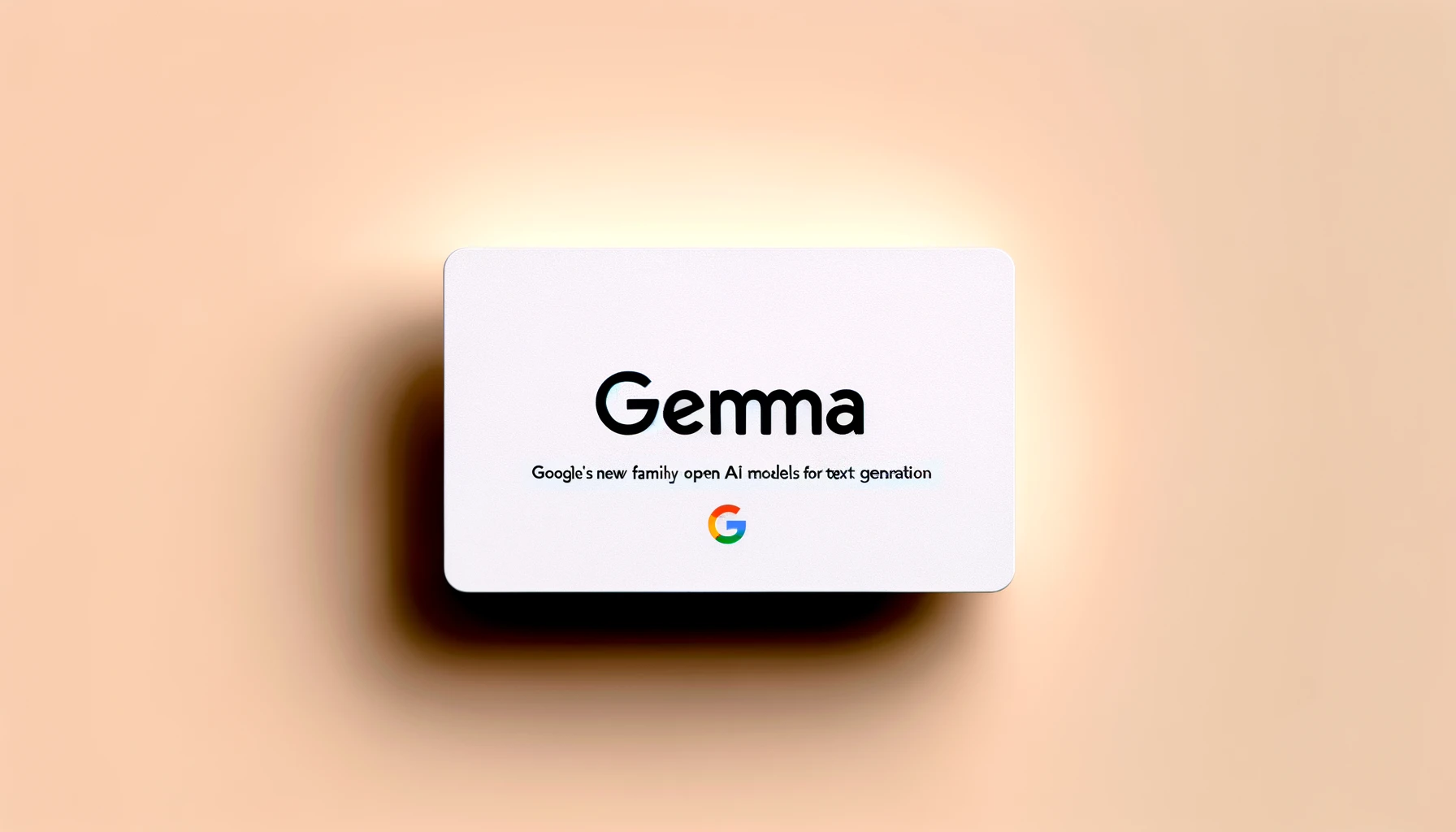
Gemma: Google’s New Family of Open AI Models for Text Generation
Google’s Vision for Accessible AI
Google has unveiled an exciting new venture in the realm of artificial intelligence: Gemma. This innovative family of open AI models expands upon the acclaimed Gemini models, embodying Google’s dedication to AI progress. With the debut of the 2B and 7B models, Google is on a mission to democratize AI technology, ensuring a broader audience can leverage these potent tools.
What is Gemma?
A New Wave of AI Models
Gemma stands out as a series of open-source, agile models designed for diverse text generation tasks. These tasks range from question answering to summarization and reasoning. The models, available in English, utilize a text-to-text, decoder-only framework. They come in pre-trained and instruction-tuned variants to suit various needs and ensure smooth deployment, even in environments with limited resources.
Behind the Scenes: Training and Technology

Empowering Gemma with Diverse Data
Training on a vast dataset of 6 trillion tokens, which encompasses web content, code, and mathematical material, has equipped Gemma models with an expansive understanding of language. Google has meticulously filtered this dataset to maintain the models’ integrity and safety.
Leveraging Cutting-Edge Hardware
The Gemma models have benefitted from Google’s latest TPUv5e hardware, a testament to the company’s pursuit of technological excellence. This choice underpins Google’s commitment to high-performing, memory-efficient, scalable, and cost-effective AI development tools.
Performance and Ethical Standards
Benchmarking Gemma’s Capabilities
Gemma models shine across various benchmarks, setting new standards in MMLU, HellaSwag, and PIQA. Alongside performance, Google has conducted rigorous ethical and safety evaluations to ensure the models align with internal content safety and ethical policies.
Gemma in Action: Revolutionizing Industries
Potential and Precautions
Gemma’s potential to revolutionize content creation, communication, research, and education is immense. However, it’s important to acknowledge the models’ limitations, such as potential biases, the complexity of tasks they can handle, and the nuances of language they might miss.
Conclusion: A Step Forward for AI Accessibility
Google’s Commitment to Open AI
Google’s Gemma is a significant advancement in the accessibility and application of AI technology. By offering open models that marry state-of-the-art performance with a commitment to ethical standards, Google is spearheading innovation and expanding the reach of advanced Artificial Intelligence tools to a global audience.
